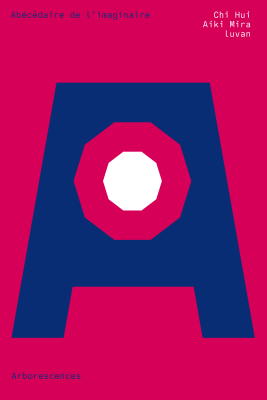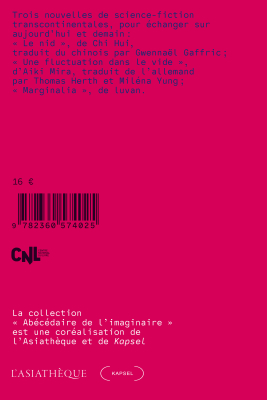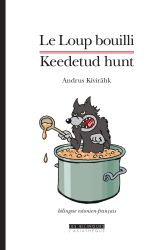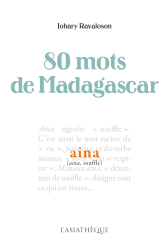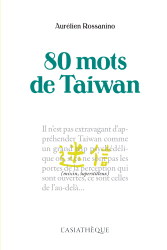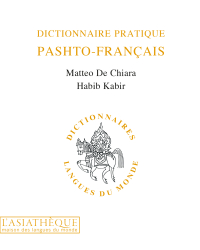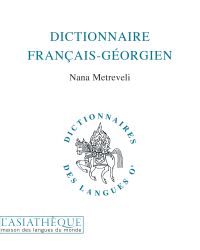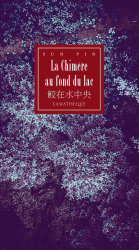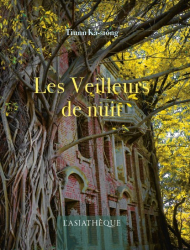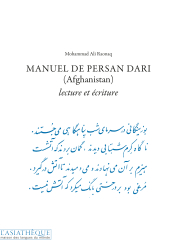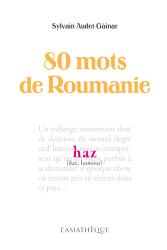Arborescences
recueil de nouvelles
(collection of short stories)
Translation: Gwennaël Gaffric, Thomas Herth, Miléna Yung
Imaginaries of China and Europe to think about today and tomorrow.
Arborescences is the first book in the new "Abécédaire de l'imaginaire" collection. It includes three short stories: "Le nid" by Chi Hui (translated from Chinese to French), "Une fluctuation dans le vide" by Aiki Mira (translated from German to French) and "Marginalia" by luvan (originally in French), as well as illustrations by art students from the Haute école des arts du Rhin (HEAR). Subsequent books will have thematic titles based on the letters of the alphabet.
Le nid by Chi Hui
The Tanla live on the distant planet Tantatula. They form a matriarchal society in which “tree-like” beings are raised in pots. When humans attempt to turn the planet into a hub for interstellar space traffic and the son of a high-ranking official disappears, the conflict between the Tanla and humans threatens to escalate. Who will prevail? The maladaptive and aggressive humans or the peaceful Tanla.
Une fluctuation dans le vide by Aiki Mira
The story is located in the subjectivity of a larva whose form and gender are not defined. This larva lives on a space station called Cosmo Park. Life there is precarious and strictly hierarchical. Bodies are commodities, sold, stolen, operated on or even given away. Some people voluntarily mutate their bodies. Others dream of living on planets where bodies grow like grass. But these planets seem inaccessible, until the arrival of the first spaceships which also transform.
Marginalia de luvan
In an epistolary story, a series of events taking place on the planet Keqin are recounted. Like the planet Tantatula in Chi Hui's short story, Keqin is colonized by humans. The events recounted reveal the difficulty of communicating through language, and a radically different reality. The absolute strangeness of bodies and relationships suggests the possibility of empathy and altruism, in the face of a central patriarchal power driven by a logic of exploitation and utilitarianism.
PRESS REVIEW
Arborescences ultimately forms a rather strange whole, positing that the future of humanity does indeed exist, but perhaps elsewhere and perhaps in a different form. It is also an injunction to dream big dreams, because, as luvan insistently writes in his story, ‘anything is possible’. (excerpt from Julien Amic's column)
(...) Fans of Chinese literature are in for a treat: Editions l'Asiathèque, which specializes in world literature and languages, particularly those of Asia, has launched a new collection entitled “Abécédaire de l'imaginaire” (...)
(...) it seems important to take into account the singularity of this book object, which stands out from the crowd thanks to its atypical format among paperbacks, which are always smaller in their current presentation, its red-pink-white gradient endpapers and its illustrations, mostly in red, pink, blue and white (...).
(...) A Chinese novel is the breeding ground for a German and a French novel. It's a great idea and the result lives up to our expectations, there's no disputing it! (...)
(...) Under the guise of SF, these three short stories were written to make us think about the evolution of our modern societies and their drifts. They deal with identity, power (political and social) and human values, among other things. (...)
L'Abécédaire de l'imaginaire, a new collection from L'Asiathèque.
“(...) these Arborescences are essential reading (...)”.
(...) The texts are beautiful, as is the book, which is the first in a collection entitled l'Abécédaire de l'imaginaire. (...)
(...) The author succeeds in surprising and captivating us, culminating in a finale that is both terrifying and accurate. It's an inventive text, a fine SF (...)
CONTRIBUTORS' BIOGRAPHIES
Chi Hui

Chi Hui (born 1984) lives in Chengdu. After studying biology, she devoted herself to writing and published more than a hundred short stories and several novels, for which she was rewarded in China with several science fiction prizes. Chi Hui belongs to a generation of talented authors born in the 1980s, such as Chen Qiufan, Tang Fei, Xia Jia and Mu Ming - whose works we are starting to find in French translation.
Gwennaël Gaffric
Gwennaël Gaffric (born 1987) is a lecturer in Chinese studies at the Université Jean Moulin Lyon 3, where he teaches Chinese language and culture. He is the author of several articles in French, English and Chinese on Chinese-language literature (China, Hong Kong and Taiwan). His recent research focuses on contemporary science fiction in Chinese. He is also one of the leading translators from Chinese of general literature, science fiction, fantasy and the humanities (literary studies, philosophy). His translations include the best-selling volumes of Liu Cixin's Three-Body Problem trilogy. He regularly translates for L'Asiathèque, where he heads the "Taiwan Fiction" collection. He has also published at L'asiathèque: La littérature à l'ère de l'anthropocène (2019).
Aiki Mira

Aiki Mira lives in Hamburg. As a non-binary person, Aiki Mira explores, in her science fiction texts, the limits of our relationships and our human identity. In 2023, Aiki Mira won the Kurd Laßwitz Prize with the novel Neongrau and received the Chrysalis Prize of the European Science Fiction Society. “A fluctuation in the void” is his first text translated into French.
Thomas Herth
Thomas Herth holds a Master's degree in Germanic Studies and a Master's degree in Management from the Ecole Supérieure de Commerce de Paris. He has been translating from German and English for 10 years for a wide range of clients: publishing houses, institutions, private companies, researchers and private individuals.
Miléna Yung
After studying philosophy in Hamburg and gaining a Master's degree in translation at the Sorbonne, Miléna Yung translates from German and English while working for Editions de Minuit. Since 2021, she has been working with Lukas Dubro on the publication in France of the science fiction magazine Kapsel.
luvan

luvan is the pen name of Marie-Aude Matignon (born in 1975 in Melun, France). luvan traveled the world before settling in Germany. A historian by training and translator, she is an author of literature, theater, radio dramas and poetry. For her, fiction is a tool for social and political reflection. She recently published Agrapha (La Volte, 2020), TysT (Scylla, 2022) and Splines (La Volte, 2022).
